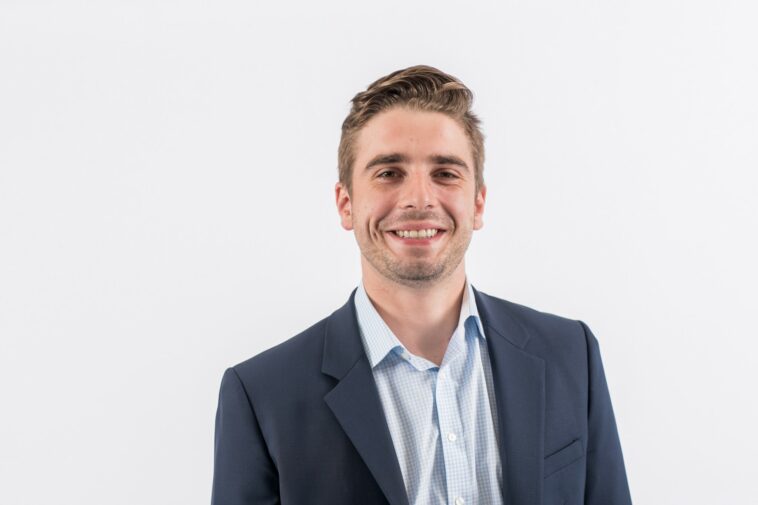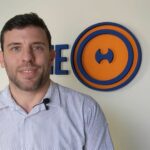This interview is brought to you by Startup Booster. Market your company with rapid, effective promotion across startup and business blogs.
Name: Brian Curcio
Company: Rapunzl

What are you building, and who benefits most from it?
Rapunzl is a gamified financial literacy platform that allows individuals to simulate $10,000 stock and crypto portfolios in real time and enter those portfolios into scholarship competitions. We host national scholarships for middle and high school students and provide a comprehensive financial literacy curriculum to educators across the country to help them teach kids about the world of money.
What is one of your startup’s most impressive accomplishments?
In 2022, Rapunzl was named one of nine finalists in the Yass STOP Awards, which recognize top education groups advancing education solutions for our nation’s youth. The award was incredibly validating for our curriculum and educator portal, and we received a $500,000 grant to grow our educator solution nationally.
What has been the biggest challenge so far, and how did you overcome it?
Our biggest challenge in building Rapunzl was the technology. My co-founder and I had never coded before launching Rapunzl, which, unsurprisingly, is a pretty big part of building an app.
182 founders interviewed so far. Get interviewed in 10 minutes, via a simple form, for free.
I had to learn how to code, first by managing outsourced developers, then by working alongside full-time employees, and eventually overseeing the merger with PrimalQuant, whose founder, Christopher Thomas, became Rapunzl’s chief technology officer. Chris is a phenomenal example of how hiring someone smarter than you can ensure that your company thrives. He has decades of coding experience in financial services, and his addition to the team in 2019 was critical for our success.
What tool or app could you not live without and why?
Without question, Trello. Our company uses it for everything. It’s a really simple tool for organizing digital sticky notes and keeping track of project deliverables. Each board can correspond to a different project or department, which allows teams to track each other’s progress, leave notes, and communicate more efficiently.

What marketing strategies have worked for you?
In all honesty, the best marketing strategy that we have is showing up. In 2018, when we hosted our first city-wide scholarship competition in Chicago, we started with emails and phone calls to every high school. When that didn’t prove fruitful, we hopped in the car and drove to the school. That year, we drove to over 200 high schools. In 2020, we bought a van and went on a college road trip that involved driving from Chicago to Houston to Miami and back.
Just showing up helped us keep marketing costs low while also giving us firsthand knowledge of a customer’s initial impressions when using the Rapunzl platform. I think there’s been a surge in automated marketing tools, but nothing can replace human interaction, particularly in education, where those relationships are so important.
Can you share any financial data about your startup?
In 2019, Rapunzl raised $3 million from Mark Walter, founder of Guggenheim Partners, to help us grow our financial education solution nationwide. That investment catalyzed our national growth. We work with over 50,000 high school students per year from all 50 states and have distributed $300,000 in scholarship prizes. We’ve maintained a consistent belief in pragmatic scaling, which has allowed us to grow the company on a national scale with a team of six and remain cash flow-positive. (Reported on March 22, 2023.)
What has been your biggest business failure to date? What did you learn from it?
Our biggest failure (which, frankly, we’re still learning from) is that we forget Rapunzl is a startup and our clients are much larger institutions, and that means things move slowly. Whether it’s seeking approval to license curriculum in school districts or requesting donations from financial institutions to support our program in underserved communities, everything takes time. This can be really frustrating and stressful for founders. However, my partner Myles and I continue to focus on doing the work, keeping our heads down, and staying focused on what we can control.
What’s the best specific piece of advice you have for other entrepreneurs?
Thinking is cheap. As entrepreneurs, we can sometimes develop a sense of misguided urgency where we feel any action is better than inaction, but that’s not always the case. When a problem emerges, it doesn’t always make sense to dive right in; sometimes, taking a step back and evaluating options can transform a problem into an opportunity or save you months of work. This is particularly true in software development, where building things right and taking the time to think them through is enormously beneficial in contrast to the “move fast, break things” mentality.
Want to be interviewed just like this? Fill out this simple form.



